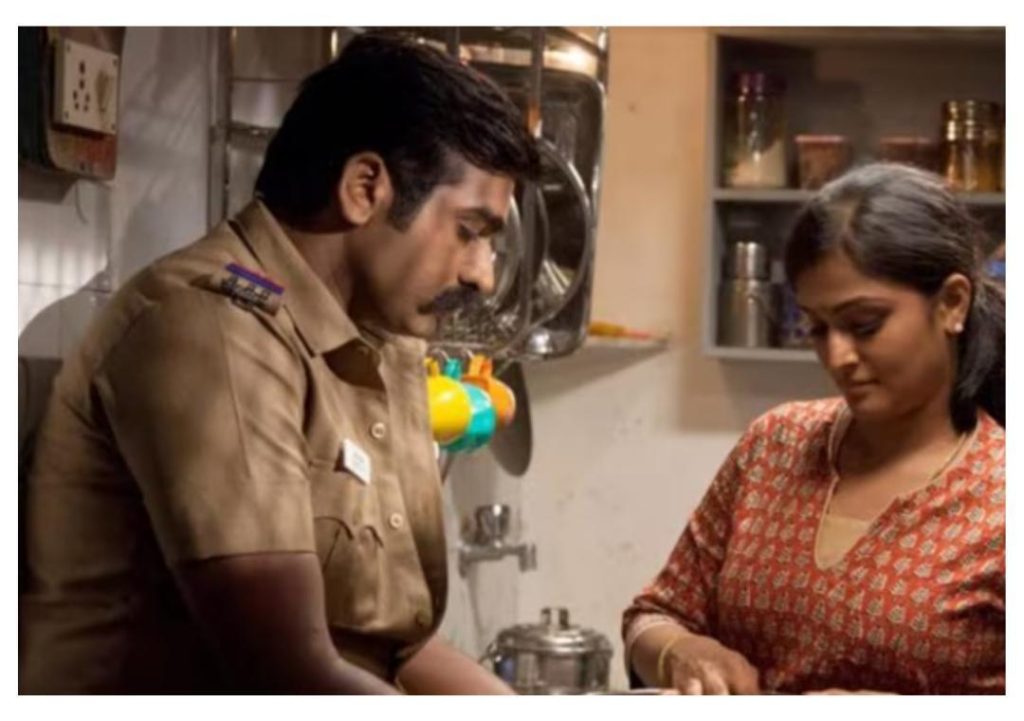
Girls Sharing it Was Scary: Arun Kumar on ‘Problematic’ Scene in Sethupathi
The Tamil film industry, like many others, has faced its fair share of controversies over the years. Recently, Veera Dheera Sooran director SU Arun Kumar expressed regret over a scene in his 2016 film Sethupathi, which he now considers “problematic”. The scene in question features a character saying, “Even if he beats me, he’ll return…and prattle lovingly. For that, I should be here.” Kumar’s revelation has sparked a lot of debate, with many questioning the portrayal of domestic violence in the film.
In an interview with a leading daily, Kumar expressed his shock and regret over the scene, stating that he had no idea it would be received in such a manner. He revealed that young girls shared the scene on WhatsApp, which scared him and made him realize the gravity of the situation. Kumar’s statement has sent shockwaves across the film industry, with many calling for a re-examination of the film’s portrayal of domestic violence.
The scene in question is set in a domestic setting, where the protagonist’s wife is seen saying the aforementioned lines to her husband. On the surface, it may seem like a harmless statement, but Kumar’s revelation has highlighted the problematic nature of the scene. The line, which is meant to convey the wife’s acceptance of her husband’s violent behavior, can be interpreted as a form of victim-blaming. It implies that the wife is willing to tolerate her husband’s abuse in exchange for his love and affection.
Kumar’s regret over the scene is understandable, given the current climate of the #MeToo movement and the growing awareness of gender-based violence. The film industry has a responsibility to portray domestic violence in a more nuanced and responsible manner. By showing a wife accepting and even celebrating her husband’s abuse, the film may inadvertently perpetuate harmful stereotypes and reinforce toxic attitudes towards women.
The scene has also sparked a debate about the portrayal of domestic violence in Indian films. While some films have tackled the issue with sensitivity and nuance, others have been criticized for their handling of the topic. The lack of regulation and accountability in the film industry has led to a proliferation of problematic scenes, which can have a lasting impact on audiences.
The impact of the scene on young girls, as mentioned by Kumar, is particularly concerning. The fact that they shared the scene on WhatsApp, which scared Kumar, highlights the need for more responsible and sensitive portrayal of domestic violence in films. Young girls, who are already vulnerable to toxic gender stereotypes, may be inadvertently reinforced by such scenes. It is essential that the film industry takes responsibility for the impact of their films on young audiences and works towards creating a more inclusive and respectful representation of domestic violence.
In recent years, there has been a growing trend towards more realistic and nuanced portrayal of domestic violence in Indian films. Films like Pink and Hichki have tackled the issue with sensitivity and nuance, highlighting the need for a more comprehensive approach to addressing gender-based violence. The film industry has a responsibility to continue this trend, creating films that challenge harmful stereotypes and promote a culture of respect and consent.
In conclusion, Arun Kumar’s revelation about the problematic scene in Sethupathi is a timely reminder of the need for more responsible and sensitive portrayal of domestic violence in Indian films. The film industry has a responsibility to create films that promote a culture of respect and consent, rather than reinforcing harmful stereotypes. By acknowledging the impact of their films on young audiences, the industry can work towards creating a more inclusive and respectful representation of domestic violence.
Sources:






